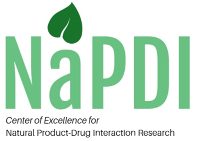Comprehensive literature search
Using 22 unique terms, a PubMed search was conducted. Preclinical and clinical pharmacokinetic studies evaluating goldenseal extracts and constituents, respective metabolites, their potential CYP/UGT metabolism and P-gp/MDRP, BCRP, OCT2, OAT1/3, OATP1B1/1B3 transport, as well as their potential drug interactions, were reviewed. Any studies involving only synthetic analogues, pharmacodynamics, non-human animal experiments, non-conventional pharmacokinetic studies, and review articles were excluded. Full text articles only in non-English languages and those not available were also not included. A total of 69 abstracts and articles were initially screened, with 39 full text articles undergoing independent review by two clinically trained reviewers. The full text of 25 articles were ultimately selected for data entry into the repository. Seven articles reported clinical trials, six of these predicted CYP3A4 related interactions and one suggested CYP1A2 inhibition. The transport proteins P-glycoprotein (P-gp), breast cancer resistance protein (BCRP), organic cation transporter 1 and 2 (OAT1/2), and organic anion transporter (OAT) all demonstrated goldenseal constituent transport activity or inhibition in preclinical studies outlined in seven publications. Goldenseal constituents or metabolites were identified as inhibitors of CYP3A4, CYP2C9, CYP2D6, CYP2E1, CYP2C8, CYP1A2, or CYP2C19 in at least one study in addition to a single study reporting CYP3A4 induction.
Selection of goldenseal as a high-priority natural product
Goldenseal products typically are used to self-treat symptoms of the common cold, as well as numerous digestive disorders, both as a single extract and in combination with other natural products, particularly Echinacea spp. Knowledge gaps exist in the scientific literature with respect to the complex mechanism(s) underlying CYP-mediated goldenseal-drug interactions observed in humans and, as well as the inhibitory effects of goldenseal on drug transporters other than P-gp.
Sourcing appropriate goldenseal products
The Analytical Core is currently evaluating candidate goldenseal products using approaches developed for the selection of a green tea product. The selected goldenseal product will undergo full quality assurance testing including quantification of key constituents, bioactivity evaluation, and shelf-life assessment prior to use in a clinical interaction study.
Mechanistic in vitro evaluation
Using human liver microsomes as the enzyme source, a validated ‘cocktail’ approach was used to assess the time-dependent inhibition of CYP2C9, CYP2D6, and CYP3A4 by berberine, hydrastine, and hydrastinine, as well an extract prepared from the goldenseal product to be administered to human subjects. Time-dependent inhibition was assessed initially by comparing IC50 curves in the absence and presence of pre-treatment with the cofactor, NADPH, for each of the three goldenseal constituents. The ratio of the IC50 in the presence to absence of pre-treatment with NADPH is the ‘IC50 shift’ value, of which the magnitude reflects the significance of time-dependent inhibition for a given enzyme-ligand pair; a ratio of ~1.5 is the general threshold. Based on these initial ‘IC50 shift’ data, studies are proposed to recover the parameters KI and kinact for all significantly inhibited enzyme-ligand pairs.
Through a contract with our industry partner, SOLVO® Biotechnology, the inhibitory effects of an extract prepared from the clinical goldenseal product (by the Analytical Core) and the principal isoquinoline alkaloids present in goldenseal (berberine, hydrastine, hydrastinine) on 14 transporters will be determined using validated assays involving established transfected cell lines. These transporters include nine uptake (MATE1, MATE2K, NTCP, OAT1, OAT3, OATP1B1, OATP1B3, OATP2B1, OCT1) and five efflux (BCRP, BSEP, MRP2, MRP3, P-gp) transporters.
Clinical study design
In vitro to in vivo extrapolation approaches will be leveraged to integrate data from multiple mechanistic in vitro studies and inform design of a definitive clinical goldenseal-drug interaction study.
Data reporting
Data describing the time-dependent inhibition of CYP2C9, CYP2D6, and CYP3A4 and transporter inhibition will be uploaded into the database using standard operating procedures developed by the Informatics Core.
Results of the clinical goldenseal-drug interaction study coming soon from the Pharmacology Core...
